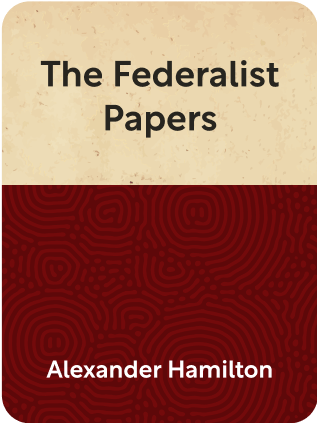

This article is an excerpt from the Shortform summary of "The Federalist Papers" by Alexander Hamilton. Shortform has the world's best summaries of books you should be reading.
Like this article? Sign up for a free trial here .
What is Federalist 29 about? How does it address militia vs military?
Federalist 29 is supportive of some militia use. However, The Federalist Papers note that militia vs military is an important distinction.
Read more about what Federalist 29 says about the difference between militia vs military.
Federalist 29: Militia vs. Military
State militias had proven inadequate to meet the national security needs of the country, as they were too loyal to their home jurisdictions and unwilling to serve in distant outposts. The poor performance of colonial militias during the Revolutionary War stood as a grim reminder of the dangers of relying upon such flimsy institutions for national defense.
Moreover, all states were not equally threatened. If national defense was left entirely to the states, larger states that had greater military needs would come to have large military establishments. These military establishments could, with time, become powerful enough to threaten the other states or the federal government itself.
A national standing army, by contrast, would serve wherever the need for it arose because it would be created by the federal government, loyal to and representing the entire nation. There would still be a role for militias to put down minor insurrections or incidents of civil unrest, but their officers would be appointed by the federal government and the men serving in them would also be formally trained by the federal government. This would turn them into more proficient fighting forces, better able to defend their states.
According to Federalist 29, the people would have little to fear from such a well-regulated militia, because it would still be composed of their friends, neighbors, and fellow citizens. Given the highly parochial nature and inherently defensive character of militias, moreover, the men serving in them would be unlikely to ever consent to being deployed out-of-state for any circumstances or for any reason—which would make it extremely difficult for the federal government to transform the militias into instruments of national oppression.
The Unlikelihood of Federal Overreach
The existence of a strong political union itself rendered fear of federal overreach highly dubious. Just as the size and unity of the colonies had helped them resist the British during the Revolutionary War, so would the states—bound together in the Union—be able to push back any encroachment at the national level. Any federal army would be dwarfed by the size of the combined state militias and powerless in the face of the loyalty of the people to their states.

———End of Preview———
Like what you just read? Read the rest of the world's best summary of Alexander Hamilton's "The Federalist Papers" at Shortform .
Here's what you'll find in our full The Federalist Papers summary :
- The genius of the founding fathers in how they designed the United States Constitution
- Why it was critical for the United States to form a union rather than stay separated as colonies
- How Alexander Hamilton anticipated social issues that are still relevant today






